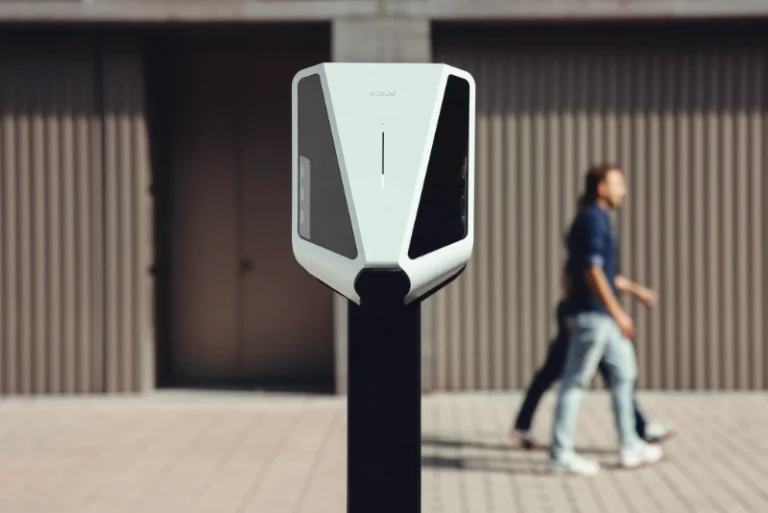In the ever-evolving landscape of modern agriculture, a transformative shift is taking place, driven by the remarkable advancements in smart irrigation systems. These cutting-edge technologies are revolutionizing the way farmers approach crop management, enabling them to optimize water usage, increase yields, and promote sustainable practices. As the world grapples with the challenges of water scarcity and the need for more efficient resource utilization, smart irrigation systems have emerged as a compelling solution, blending precision, data-driven insights, and the power of the Internet of Things (IoT).
Smart irrigation systems are transforming the agricultural industry by leveraging a diverse array of sensor-driven technologies and data-driven decision-making. These systems integrate real-time environmental and soil moisture data, allowing farmers to precisely monitor and regulate water distribution, tailoring it to the specific needs of each crop and soil condition. This level of personalized crop watering not only conserves precious water resources but also leads to increased yields and improved crop health, paving the way for a more sustainable and efficient future in agriculture.
Key Takeaways
- Smart irrigation systems are revolutionizing crop management by optimizing water usage and increasing yields.
- These technologies leverage sensor-driven data and the Internet of Things to enable precision farming and sustainable water management.
- Smart irrigation systems are transforming the agricultural industry, making it more efficient, data-driven, and environmentally conscious.
- Farmers can now precisely monitor and regulate water distribution, leading to improved crop health and increased productivity.
- The rise of smart irrigation systems is a significant step towards a more sustainable and efficient future in agriculture.
Understanding Precision Agriculture
In the ever-evolving world of agriculture, precision farming techniques have emerged as a game-changer. This innovative approach to precision agriculture combines the power of data-driven insights and advanced technologies to optimize farming practices, enhance crop yields, and promote sustainable water management.
The Evolution of Farming Techniques
Over the years, farming techniques have undergone a remarkable transformation. Traditional methods have given way to more sophisticated, data-driven approaches that leverage the latest advancements in IoT-enabled agriculture. Farmers now have access to a wealth of real-time information, enabling them to make informed decisions and adapt their practices to the unique needs of their crops and land.
The Need for Sustainable Water Management
As the global population continues to grow, the demand for food and the need for efficient water management in agriculture have become increasingly critical. Sustainable water management practices are essential to ensure the long-term viability of our food production systems. Precision agriculture offers innovative solutions, such as sensor-driven irrigation systems and data-driven irrigation scheduling, to optimize water usage and reduce waste.
By embracing these data-driven farming and IoT-enabled agriculture techniques, farmers can enhance their productivity, conserve precious natural resources, and contribute to a more sustainable future for the agricultural industry.
What are Smart Irrigation Systems?
Smart irrigation systems have revolutionized the way farmers approach water management in agriculture. These innovative technologies leverage the power of the Internet of Things (IoT) and sensor-driven irrigation to optimize water usage and enhance crop yields. By integrating advanced sensors, data analytics, and automated controls, smart irrigation systems are transforming the landscape of precision farming and water management technology.
Internet of Things (IoT) in Agriculture
The integration of IoT in agriculture has paved the way for more efficient and data-driven irrigation practices. Smart irrigation systems utilize a network of interconnected sensors placed throughout the fields, which constantly monitor soil moisture levels, weather patterns, and other environmental factors. This real-time data is then transmitted to a central control system, allowing farmers to make informed decisions about when and how much to water their crops.
Sensor-Driven Irrigation Technology
- Soil moisture sensors: Precisely measure the moisture content of the soil, ensuring that water is applied only when necessary.
- Weather sensors: Monitor rainfall, temperature, and other environmental conditions to optimize irrigation schedules.
- Flow meters: Track the volume of water used, enabling efficient water management and conservation.
- Evapotranspiration sensors: Measure the rate of water loss from the soil and plants, allowing for more accurate irrigation scheduling.
By leveraging these advanced sensors, smart irrigation systems can create a tailored watering plan for each crop, maximizing water efficiency and minimizing waste. This sensor-driven technology is a crucial component of precision farming, enabling farmers to optimize their resources and enhance overall agricultural productivity.
| Feature | Description |
|---|---|
| Soil Moisture Monitoring | Sensors continuously measure soil moisture levels to determine optimal irrigation schedules. |
| Weather Integration | Real-time weather data is used to adjust irrigation based on precipitation, temperature, and other environmental factors. |
| Automated Scheduling | Smart systems automatically adjust irrigation schedules to meet the specific needs of each crop and field. |
| Remote Control | Farmers can monitor and control their irrigation systems remotely, using mobile devices or web-based platforms. |
By seamlessly integrating IoT and sensor-driven technology, smart irrigation systems offer a comprehensive solution for water management in modern agriculture, paving the way for a more sustainable and productive future.
De opkomst van slimme irrigatiesystemen in de landbouw
As the world faces the challenges of water scarcity and the need for sustainable agriculture, the rise of smart irrigation systems has become a game-changer in the farming industry. These advanced irrigation technologies, powered by the Internet of Things (IoT) and sensor-based monitoring, are transforming the way we approach precision farming and water-saving practices.
Across the globe, farmers are embracing the benefits of smart irrigation systems, which utilize real-time data to optimize water usage and enhance crop yields. These systems, integrated with a network of sensors, can precisely monitor soil moisture, weather conditions, and plant water requirements, ensuring that every drop of water is utilized effectively.
The adoption of smart irrigation systems in agriculture has been particularly prevalent in regions facing water scarcity, such as the Middle East, parts of Africa, and the western United States. By leveraging the power of IoT-driven agriculture, farmers in these areas are able to significantly reduce water consumption while maintaining high-quality crop production.
Furthermore, the integration of smart irrigation technologies with precision farming techniques has led to a surge in overall agricultural efficiency. Farmers can now make data-driven decisions, tailoring their irrigation practices to the specific needs of their crops and soil, leading to increased yields and reduced environmental impact.
The Future of Smart Irrigation
As the demand for water-saving technologies continues to rise, the future of smart irrigation systems in agriculture looks incredibly promising. With advancements in sensor technology, machine learning, and cloud computing, the capabilities of these systems are expected to expand, making them increasingly accessible and user-friendly for farmers of all scales.
The integration of smart irrigation systems with other emerging technologies, such as autonomous farming equipment and predictive analytics, will further enhance the efficiency and sustainability of the agricultural sector, paving the way for a more prosperous and environmentally-conscious future.
Benefits of Smart Irrigation Systems
As the demand for sustainable and efficient agricultural practices continues to grow, the benefits of adopting smart irrigation systems become increasingly clear. These innovative technologies offer a range of advantages that can revolutionize the way we approach water conservation and crop cultivation.
Water Conservation
One of the primary benefits of smart irrigation systems is their ability to conserve water resources. By utilizing advanced sensors and data-driven algorithms, these systems can precisely monitor soil moisture levels and weather conditions, ensuring that water is applied only when and where it’s needed. This targeted approach minimizes waste and helps to preserve precious water supplies, making agriculture more sustainable in the long run.
Increased Crop Yields
In addition to water conservation, smart irrigation systems have a significant impact on crop yields. By delivering the right amount of water at the optimal times, these technologies can support plant health and growth, leading to higher-quality harvests and increased productivity. This, in turn, contributes to more efficient and profitable agricultural operations, benefiting both farmers and consumers.
The integration of smart irrigation systems into modern farming practices is a crucial step towards a more sustainable and prosperous future for the agricultural industry. By harnessing the power of cutting-edge technology, growers can not only conserve valuable water resources but also enhance their crop yields, ultimately driving the growth of the precision farming movement and sustainable agriculture.
Data-Driven Farming
In the world of modern agriculture, data has become the secret weapon for savvy farmers. Data-driven farming, fueled by the advancements in precision agriculture and IoT-enabled farming, is transforming the way farmers make informed decisions and optimize their operations.
At the heart of this data revolution are sensor data and smart farming technologies. Farmers are now leveraging a network of sophisticated sensors to gather real-time insights into soil moisture, weather patterns, crop health, and more. This wealth of data allows them to fine-tune their irrigation schedules, adjust their fertilizer application, and make strategic decisions that maximize yields and minimize waste.
- Precision irrigation: Smart irrigation systems powered by sensor data help farmers deliver the right amount of water to their crops, reducing water usage and improving crop yields.
- Predictive analytics: Advanced data analysis and machine learning algorithms enable farmers to anticipate weather patterns, pest infestations, and other challenges, empowering them to proactively address potential issues.
- Automated decision-making: IoT-connected farming equipment and software can automate various tasks, from seed planting to harvesting, freeing up farmers to focus on higher-level strategic planning.
By embracing data-driven farming, farmers are not only improving their operational efficiency but also contributing to more sustainable and environmentally-friendly agricultural practices. As the industry continues to evolve, the role of data in shaping the future of farming is undeniable.
Implementing Smart Irrigation Systems
As precision farming gains traction, the implementation of smart irrigation systems has become a crucial consideration for modern agricultural practices. While the benefits of these innovative technologies are well-documented, there are several challenges and factors to navigate when adopting them.
Infrastructure Requirements
Integrating smart irrigation systems often requires significant investments in infrastructure, including sensor networks, automated control systems, and data management platforms. Ensuring compatibility with existing farm equipment and establishing reliable connectivity can be hurdles that farmers must overcome.
Overcoming Adoption Barriers
The adoption of precision farming and smart irrigation technologies can be hindered by factors such as the cost of implementation, limited technical expertise, and concerns about data privacy and security. Addressing these barriers through education, financial incentives, and trusted partnerships is crucial for driving widespread smart farming adoption.
Data Integration Challenges
Seamlessly integrating the data generated by smart irrigation systems with other precision farming tools can be a complex process. Ensuring interoperability, data standardization, and effective data analysis is necessary to unlock the full potential of these technologies and support informed decision-making.
| Consideration | Key Factors |
|---|---|
| Infrastructure |
|
| Adoption Barriers |
|
| Data Integration |
|
By addressing these challenges and considerations, farmers and agricultural businesses can navigate the successful implementation of smart irrigation systems, unlocking the full potential of precision farming and driving sustainable water management practices.
The Future of Smart Agriculture
As the world continues to embrace the power of smart technologies, the future of agriculture is poised for a remarkable transformation. The integration of advanced technologies, such as artificial intelligence (AI), machine learning, and robotics, is set to revolutionize precision farming practices and IoT-driven agriculture.
Unlocking the Potential of Advanced Technologies
The future of smart agriculture will be characterized by the seamless integration of cutting-edge technologies that enhance efficiency, productivity, and sustainability. AI-powered algorithms will enable farmers to make data-driven decisions, optimizing crop yields and resource utilization. Machine learning models will analyze real-time data from sensors embedded in smart irrigation systems, allowing for precise adjustments and automated decision-making.
Furthermore, the adoption of robotic systems will revolutionize labor-intensive tasks, such as harvesting, weeding, and spraying, freeing up valuable human resources for higher-level planning and strategic decision-making. The future of smart agriculture promises a more efficient, cost-effective, and environmentally responsible approach to food production.
Embracing the Precision Farming Trends
- Predictive analytics will enable farmers to anticipate and respond to changes in weather patterns, pest infestations, and soil conditions, optimizing crop management strategies.
- Autonomous drones and vehicles will provide real-time aerial and ground-level monitoring, delivering detailed insights into the health and progress of crops.
- Blockchain technology will revolutionize supply chain traceability, ensuring transparency and accountability throughout the agricultural ecosystem.
As the integration of smart technologies continues to evolve, the future of smart agriculture will redefine the way we approach food production, paving the way for a more sustainable and efficient global food system.
Case Studies and Success Stories
As the agricultural industry embraces the power of smart irrigation systems, real-world success stories are emerging, showcasing the tangible benefits and transformative impact of these innovative technologies. Let’s explore a few inspiring case studies that highlight the potential of precision agriculture and the successful implementation of smart irrigation systems.
In the heart of California’s fertile Central Valley, the Smith Family Farm has been at the forefront of agricultural innovation. By implementing a cutting-edge smart irrigation system, they have been able to optimize water usage, leading to a remarkable 25% reduction in water consumption without compromising crop yields. “The smart sensors and algorithms have allowed us to precisely monitor and control our irrigation, ensuring that every drop counts,” shares Jane Smith, the farm’s operations manager.
Across the country, in the rolling hills of Pennsylvania, the Wilkins Orchard has seen a remarkable transformation since adopting a smart irrigation system. Faced with the challenges of unpredictable weather patterns and limited water resources, the orchard owners turned to precision agriculture solutions to optimize their operations. As a result, they have experienced a 20% increase in apple production while cutting their water usage by 30%.
- The Smithfield Dairy Farm in Wisconsin has implemented a smart irrigation system that has reduced their water consumption by 18% and increased milk production by 12%.
- The Greenfield Vegetable Co-op in Maine has leveraged smart irrigation technology to achieve a 22% increase in overall crop yields, all while conserving precious water resources.
These inspiring smart irrigation case studies and precision agriculture success stories demonstrate the transformative potential of these cutting-edge solutions. By seamlessly integrating advanced sensors, data analytics, and intelligent control systems, farmers and agricultural enterprises are reaping the rewards of real-world smart irrigation implementation and successful smart farming examples.
Conclusion
The rise of smart irrigation systems has ushered in a new era of precision farming, revolutionizing the way we approach sustainable agriculture. These innovative technologies, powered by the Internet of Things (IoT) and sensor-driven irrigation, have demonstrated their transformative potential in conserving precious water resources and boosting crop yields.
As we look toward the future, the continued integration of advanced technologies, such as data-driven analytics and precision farming techniques, will play a pivotal role in shaping the landscape of sustainable agriculture. By embracing these water-saving technologies in agriculture, farmers and agricultural communities can take significant strides toward more efficient and environmentally-conscious practices, ensuring the long-term viability of our food production systems.
The case studies and success stories highlighted throughout this article serve as a testament to the tangible benefits of smart irrigation systems. These examples underscore the importance of adopting precision farming techniques and the crucial role they play in addressing the pressing challenges of water scarcity and the need for sustainable agriculture practices. As the industry continues to evolve, the future of smart agriculture holds immense promise, paving the way for a more resilient and prosperous agricultural landscape.








